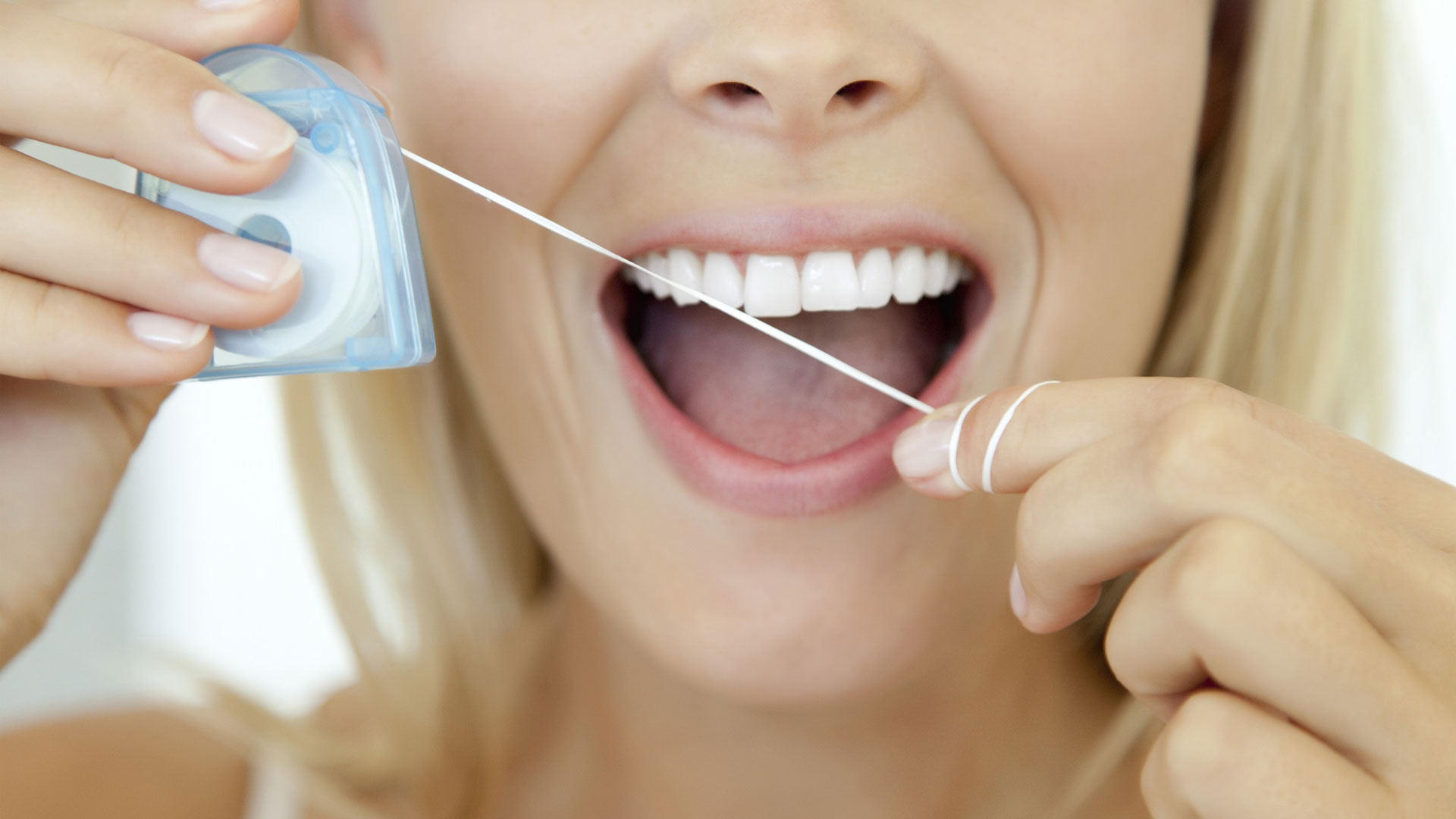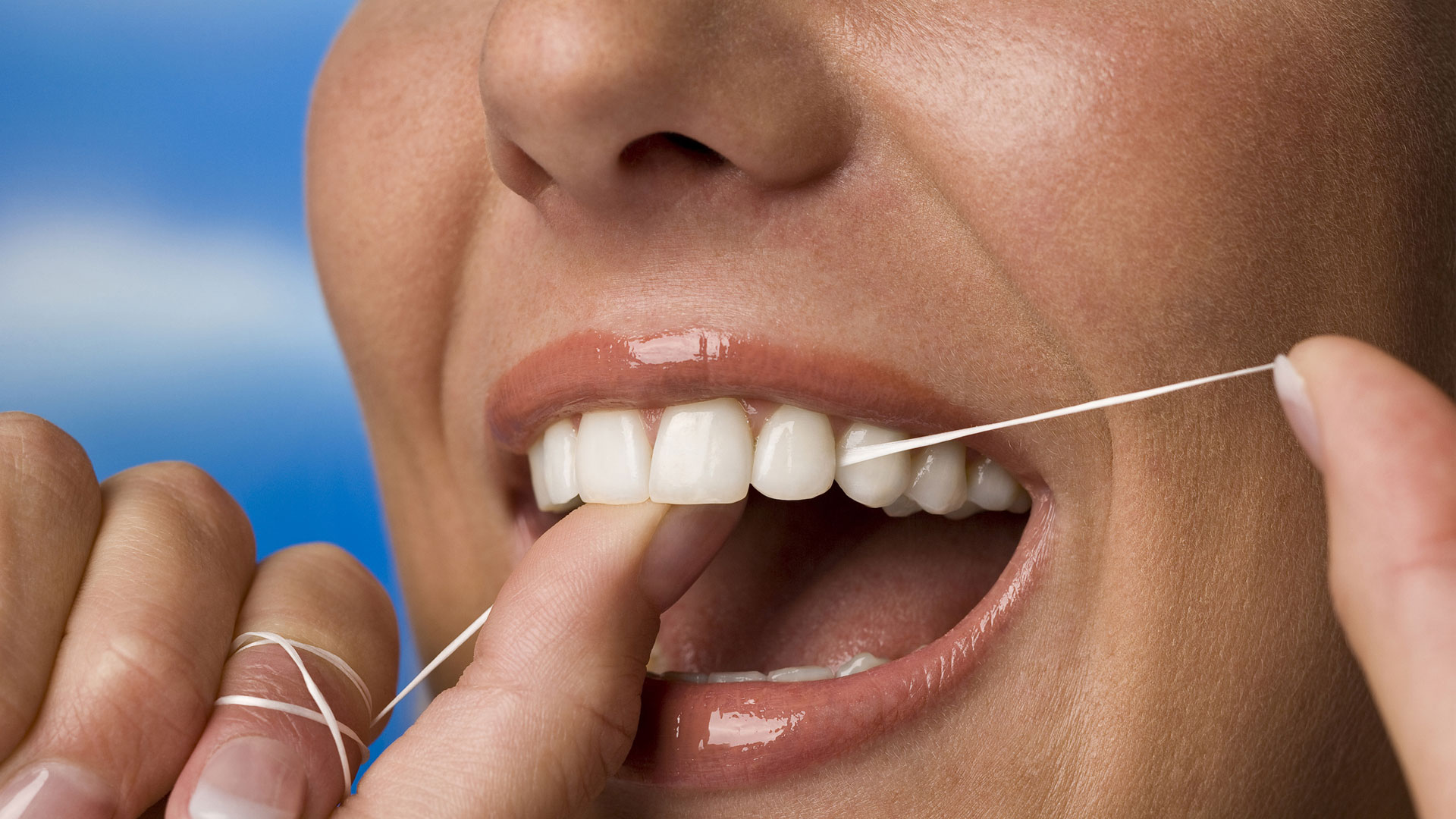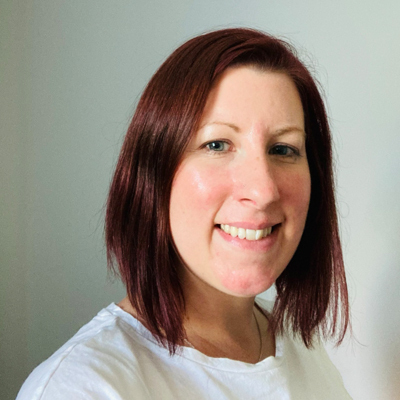How often should you floss?
How often should you floss? Brushing and flossing should be part of any daily oral health routine, but how often should you do it?

Flossing your teeth is vital for good oral hygiene so how often should you floss? Flossing removes trapped food particles and plaque from the hard-to-reach areas between your teeth and around the gumline, but it's not always clear how frequently we should floss our teeth. for the best results.
Plaque contains bacteria which like to feed on the leftover food and sugar deposited around your teeth; it releases an acid that attacks the enamel, the outermost part of your tooth. Enamel is the hardest substance in the human body, but once breached you may succumb to cavities or tooth decay, gum disease and even toothache.
So, how often should you floss? Once a day? Twice a day? After each time you eat? We aim to settle the debate, and determine whether you should floss or brush first, before taking a look at the different types of dental floss available.
When it comes to oral health, investing in one of the best electric toothbrushes is a great place to start, but flossing is still essential to keep your smile looking perfect.
How often should you floss your teeth?
No matter how well you brush, food debris, plaque and bacteria will still be trapped between your teeth. Flossing is a vital part of your oral health regime, yet many people still don’t realize just how important it is; it’s often regarded as an optional extra, rather than a necessity. Flossing has even been linked to a lower risk of oral cancer. Yet flossing can also seem like a bit of a chore, but not if you make it a habit, said dentist Dr Arun Narang.
"Most of us remember to brush our teeth twice a day without a problem, and that’s because it’s a habit. We do it at the same time each day, pretty much without thinking about it," Dr. Narang told LiveScience. "Adding flossing to your oral hygiene routine will pay big dividends. I suggest leaving yourself a visual cue to remind you to floss every day. You can leave your dental floss out on your bathroom counter or put a Post-it Note on your bathroom mirror."

"The American Dental Association (ADA) recommends flossing at least one to two times per day, though flossing three times per day is excellent for a healthy oral health routine," SmileDirectClub’s DMD and Chief Clinical Officer, Dr. Jeffrey Sulitzer advised LiveScience. "Flossing helps eliminate any plaque or calculus between the teeth, prevents cavities, reduces the risk of gingivitis, and flossing for two to five minutes will remove lingering food and bacteria."
But it isn’t just about how often you floss; it’s also about how well you floss. You should take your time to ensure you cover all the hard-to-reach areas, including the gumline. The American Dental Association advises using a gentle rubbing motion; when the floss reaches the gumline you should curve it against one tooth, sliding it into the space between the gum and the tooth, before rubbing the side of the tooth, and moving the floss away from the gum in a vertical, up and down motion.
It’s also important to note that flossing shouldn’t hurt; you may experience some tenderness or bleeding of the gums at first, said the NHS, but once it’s part of your routine any discomfort should subside.
Should you floss after brushing or before?
The spaces between our teeth count for around 30% of the total surface of our teeth, said Cat Edney, a dental hygienist and therapist.
"It is vitally important that we keep them clean especially as they are in hard-to-reach areas where bacteria can stagnate if left to its own devices," Edney told LiveScience. "I often suggest cleaning in between before brushing so that the toothpaste is more likely to reach these areas that are vulnerable to decay."

Dr. Narang agrees: "Do it in the right order. Floss, then brush. Flossing dislodges bits of food and plaque, and you need to brush afterwards to get these particles out of your mouth."
The ADA says it doesn’t matter when you floss as long as you do it. Sulitzer agrees: "Some dentists recommend flossing before brushing teeth and using mouthwash; however, if flossing later in your oral care routine is a better fit for someone, I recommend whatever order best ensures consistency."
What types of dental floss are there?
There is an overwhelming choice of basic dental flosses on the market but what types of floss are there, and which is best for you? Each dental floss has its pros and cons, and it might be that you need to experiment with lots of different options before you find something that works for you, Edney said.
There are unwaxed flosses, which consist of a thin nylon floss made of about 35 strands twisted together. If your teeth are close together, you may find it fits nicely into the tight spaces, but it can be prone to shredding or breaking. Waxed floss is essentially the same but has a light wax coating; although this makes it less likely to break, it may be harder to use if your teeth are close together.
"For tightly packed teeth a tape-style floss is often easier to use and you can get it as handy floss-picks which can be helpful for accessing hard to reach areas," said Edney. Tape floss tends to be slightly flatter and broader than floss, and comes in waxed and unwaxed versions.
"If you have larger spaces or any bleeding of the gums it is often more effective to use interdental brushes to keep these areas clean, they should fit snugly," Edney advised. Interdental brushes have a small bristled head that slots in the spaces between your teeth and come in a range of different sizes to suit the size of the gaps.
Flossing is just one of many ways to remove food and plaque trapped between your teeth. It doesn’t matter when you do it, or even how many times, as long as you floss daily to prevent tooth decay and gum disease.
- Related: Can wisdom teeth grow back?
Sign up for the Live Science daily newsletter now
Get the world’s most fascinating discoveries delivered straight to your inbox.
Kerry is a freelance writer and editor, specializing in science and health-related topics. Her work has appeared in many scientific and medical magazines and websites, including Forward, Patient, NetDoctor, YourWeather, the AZO portfolio, and NS Media titles.
Kerry’s articles cover a wide range of topics including astronomy, nanotechnology, physics, medical devices, pharmaceuticals and mental health, but she has a particular interest in environmental science, cleantech and climate change.
Kerry is NCTJ trained, and has a degree Natural Sciences from the University of Bath where she studied a range of topics, including chemistry, biology, and environmental sciences.











